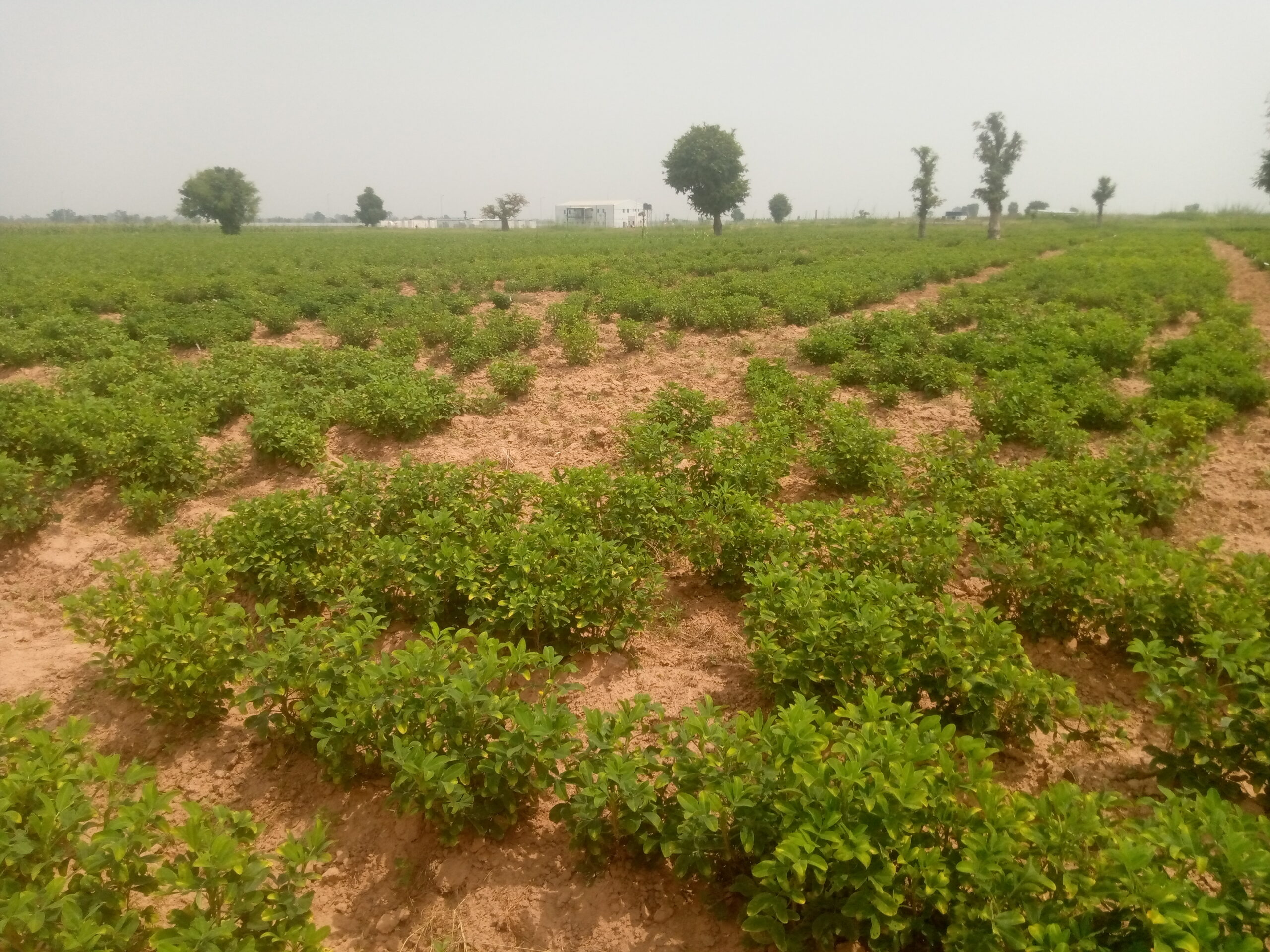Low budgetary allocation to the agricultural sector in Nigeria has been a major issue of debate by stakeholders in recent times. It is an obvious fact that the agricultural sector is not adequately funded despite Nigeria’s commitment to the 2003 Maputo and 2014 Malabo declarations to allocate at least 10 per cent of the national annual budget to the agricultural sector.
In the last seven years or more, the budget for the agricultural sector has not exceeded two per cent of the total budget. However, empirical evidence has shown that the greater the resources committed to a sector, the greater the output in terms of social benefit to the society. Given that the agricultural sector is adjudged as the sector with the potential to transform the economy and employ the teeming youths, adequate funding must be prioritised for it in the national budget.
- NIGERIA DAILY: Mambila: 100 Billion Naira Down the Drain
- Parallel congresses: Pressure on Buni to sanction Shekarau, Amosun, Aregbesola, others
Currently, the agricultural sector contributes 26 per cent to the national GDP and employs over 70 per cent of the population. However, the sector is still facing historical challenges such as poor access to inputs, poor infrastructure, over-dependence on rainfall, operations on fragmented small farm-holdings, and other related challenges. Despite the enormous responsibilities ascribed to the agricultural sector, amidst the global and domestic economic uncertainties and the persistent setback from the COVID-19 pandemic, public spending for agriculture in terms of budgetary allocation is not commensurate with the expected social benefits. The first concern for stakeholders is that the budget process starts and ends late, which affects the process of planning for the farming season. On this note, members of the National Assembly should expedite action in deliberating and passing the budget to give sufficient time for planning for the next farming season.
The 2022 proposed appropriation bill of N16.9 trillion tagged “budget of economic growth and sustainability” was presented to the joint session of the National Assembly by the president on the 7th of October. The assumption is that the allocations to MDAs, particularly the agricultural sector, were guided by the strategic objectives of the National Development Plan of 2021 and the Agricultural Promotion Policy (APP) as a way to sustain the quest by the government to increase domestic food production, job creation, and import substitution.
Out of the total budget of N16.9 trillion, only N291.4 billion was allocated to the agricultural sector which is a marginal increase of about four per cent from the N280.3 billion of 2021approved budget. In terms of proportion, the allocation to agriculture is 1.78 per cent and this falls short of the CAADP benchmark. It is against this background that I argue that the public spending in the agricultural sector is low and should be increased. This is because fresh demands have been placed on agriculture as part of the government’s vision of diversifying the economy away from oil. You would recall that in 2014 at Malabo, African Heads of State signed to commit at least 10 per cent of their national budget to the agricultural sector. Unfortunately, Nigeria has been trailing with regard to fulfilling this commitment.
Diving further into the proposed 2022 Agriculture budget, the capital expenditure of N215.8 billion equals about 75 per cent of the budget while the recurrent expenditure of N75.5 billion is about 25 per cent. In as much as this looks like a plus as capital is higher than recurrent, and based on the assumption that more capital spending translates to a higher contribution to the economy in terms of jobs and social benefits, however, most of the capital line items are repetitions of line items stated in previous budgets. For example, the first capital line item for FMARD is the installation of solar street lights nationwide which appeared in 2021 for N720 million and in 2022 for N740 million. Based on the mandate of FMARD, stakeholders may need to be convinced that such a project is situated in the right ministry. Also, some of the line items in the capital budget will need further explanation for citizens to understand. For example, the line item ERGP22175065, titled construction of public toilets in public schools and markets in rural areas, which is a new project of N630 million will need further explanation and justification for the said amount. The main ministry must focus on its core responsibilities of supervision and regulation. It is equally important that the relevant capital project relating to infrastructure should have locations to engender tracking and monitoring. For example, the N2.3 billion for irrigation and all-year-round farming (ERGP30174874) has no further information regarding where the infrastructure will be installed.
Another important thing to note is that out of the N291.3 billion, about N185.1 billion (63%) is allocated for the main ministry headquarters in Abuja while the over 40 agencies under her, including the universities of agriculture, share N106.2 billion (37%). Many stakeholders think that the sharing ratio is unfair and should be adjusted so that the implementing agencies can have more funds to execute projects and the main ministry focuses on its fundamental roles. Meanwhile, it also appears that the other MDAs have not learnt to create quality capital projects; a careful perusal of some of the line items of the MDAs under the Ministry of Agriculture shows a high level of repetition of projects proposed in previous years. Going forward, MDAs, particularly research institutions, should have innovative proposals on developing new varieties of crops and transferring innovative technologies to farmers. It would be important for the Civil Society organisation’s searchlight to shine on them too.
Experience over the years showed that budget performance has been very poor especially in the area of cash backing implementation of capital projects, but then almost 100 per cent of recurrent expenditure is used. This means that the salaries and emoluments paid to staff do not match their outputs. It is like operating below installed capacity and does not reflect effective use of resources. The government must explore a more sustainable way to run the system and guarantee value for money.
Finally, I think the budget document has improved in terms of quality with less frivolous items and repetitions. It is now the duty of the National Assembly to deliberate, amend and pass the budget on time so that implementation can commence.
Aguiyi is the Associate Programme Officer-Alliance for a Green Revolution in Africa

 Join Daily Trust WhatsApp Community For Quick Access To News and Happenings Around You.
Join Daily Trust WhatsApp Community For Quick Access To News and Happenings Around You.


